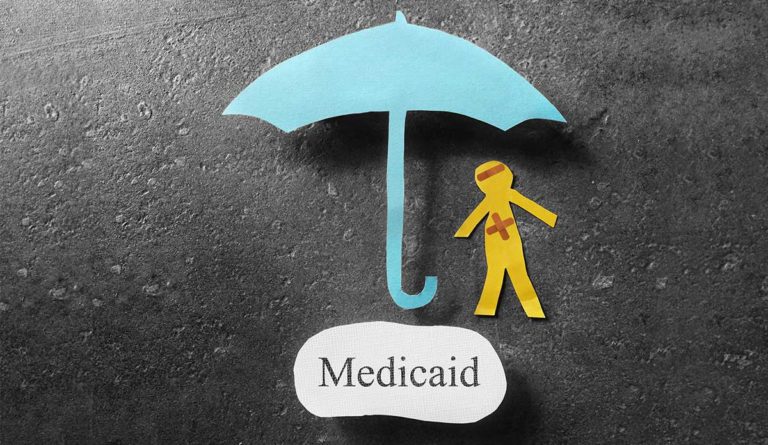Medicaid Work Requirements Increase Coverage Gaps
Arkansas disenrolled more than 18,000 adults from Medicaid who had not proved they were working. Most will likely experience either a temporary or extended period of time without insurance.

Read Time: 4 minutes
Published:
In January, Arkansas announced it had disenrolled more than 18,000 adults from Medicaid who had not submitted the required paperwork to prove they were working, a new requirement for continuing to receive coverage. The Trump administration has encouraged states to restrict coverage this way (a “waiver” of previous practice) under the Social Security Act. The administration has approved such waivers, imposing work requirements, in six other states and is considering applications in eight more. Two lawsuits are challenging the administration’s approval of waivers in Arkansas and Kentucky on the grounds that cutting off Medicaid is inconsistent with the program’s goal of providing access to health care for those who are eligible by law.
Tens of thousands of Arkansans enrolled in Medicaid must now go online monthly to report at least 80 work hours or equal time spent on job training, community service, or caring for a dependent child. Failure to comply for three months locks you out of Medicaid until the next year. It is unlikely that many of the 18,000 people who have already lost their Medicaid coverage will easily gain another source of insurance.
It is unlikely that many of the 18,000 people who have already lost their Medicaid coverage will easily gain another source of insurance.
Over the two-year period beginning in January 2014 and ending in December 2015, a Commonwealth Fund analysis of federal data shows that one-third of non-disabled adults enrolled in Medicaid nationwide at the beginning of the period had disenrolled by the end of the period. Of those, just over one-quarter left Medicaid for another coverage source, including job-based insurance or Medicare. But nearly three-quarters became uninsured and remained so until the end of the two-year period. This suggests that, because the 18,000 people who lost Medicaid in Arkansas this year did so involuntarily, most will likely experience either a temporary or extended period of time without insurance. Indeed, Arkansas reported that only 1,452 people of the 18,000 reenrolled in January.
Even short gaps in coverage can disrupt health care and economically distress poor families. The Commonwealth Fund Biennial Health Insurance Survey has found that working-age adults who experience gaps in their health insurance report not getting health care because of cost at nearly the same rate as people who are without coverage for the entire year. The two groups also report similar rates of problems paying medical bills and the accumulation of medical debt.
Income eligibility rules in Medicaid increase this dynamic—even a small change in income can make someone eligible or ineligible for benefits.
Insurance coverage in the United States is highly dynamic. People move in and out of employer coverage, individual coverage, Medicaid, and Medicare because of life changes as simple as a birthday, moving to a new city, getting a new job, or getting married. This phenomenon is often referred to as “churn.” Income eligibility rules in Medicaid increase this dynamic—even a small change in income can make someone eligible or ineligible for benefits. Medicaid enrollees also face significant documentation requirements at the time of enrollment and during re-enrollment. Prior research by Benjamin Sommers suggests that administrative barriers, particularly renewal, are the primary reason people become disenrolled from Medicaid.
The Affordable Care Act attempted to reduce coverage gaps by making it easier for people to move between coverage options and maintain their coverage once enrolled. Several reforms were made to Medicaid aimed at simplifying enrollment, including the elimination of in-person interviews, limiting information requested from Medicaid applicants, and electronic information verification that uses data from other federal and state agencies. But these earlier enrollment reforms are being undercut by the new enrollment barriers such as work requirements. States that establish new eligibility criteria for Medicaid will accelerate churn and leave hundreds of thousands of people without access to health care.
Feature image: zimmytws/iStock



